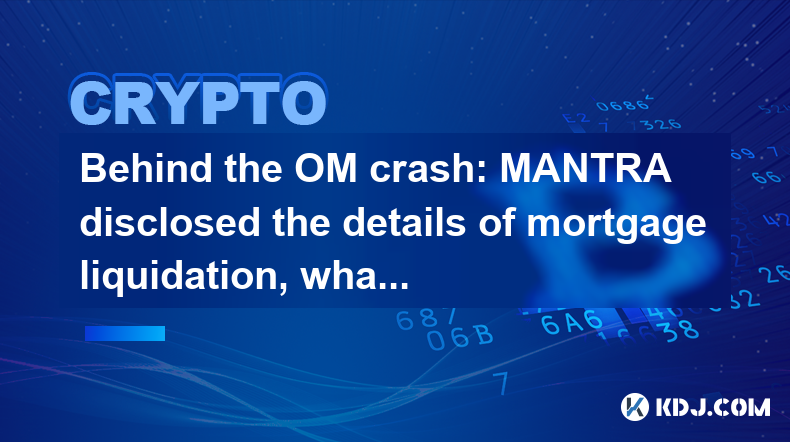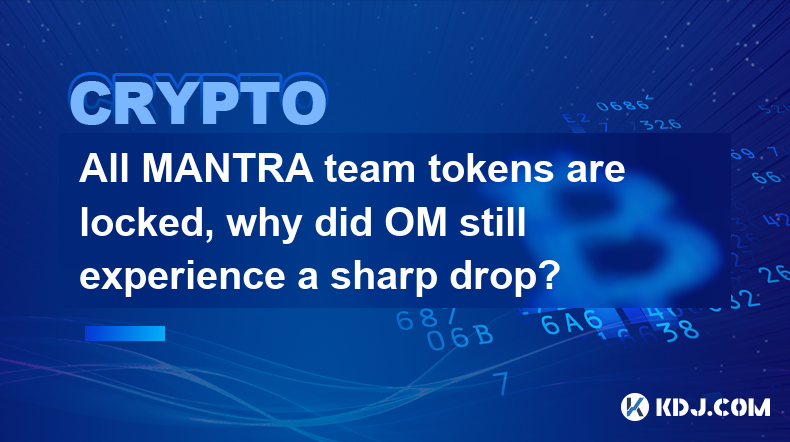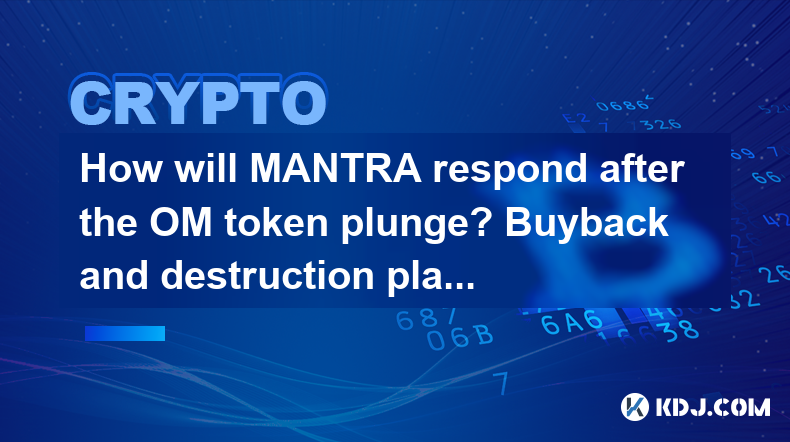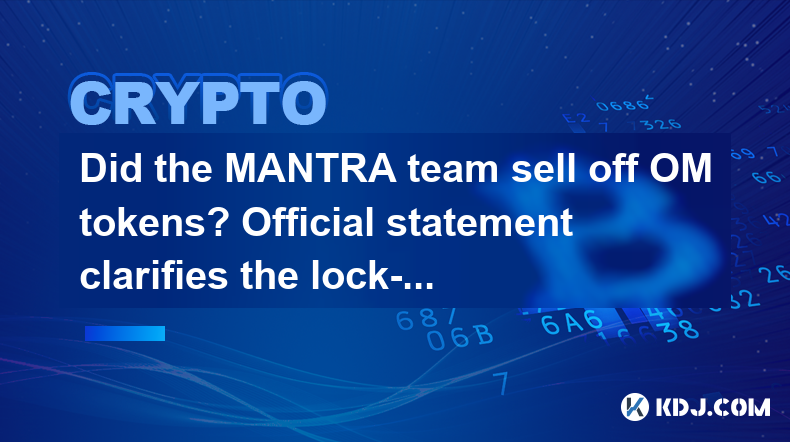-
 Bitcoin
Bitcoin $84,627.6058
-0.90% -
 Ethereum
Ethereum $1,591.8452
-0.73% -
 Tether USDt
Tether USDt $1.0000
0.02% -
 XRP
XRP $2.0622
-1.31% -
 BNB
BNB $594.1793
0.29% -
 Solana
Solana $139.2116
-0.05% -
 USDC
USDC $0.9999
0.01% -
 Dogecoin
Dogecoin $0.1564
-1.47% -
 TRON
TRON $0.2427
0.22% -
 Cardano
Cardano $0.6228
-1.30% -
 UNUS SED LEO
UNUS SED LEO $9.3269
-0.27% -
 Chainlink
Chainlink $13.1044
1.74% -
 Avalanche
Avalanche $19.6498
0.28% -
 Stellar
Stellar $0.2439
-1.35% -
 Toncoin
Toncoin $2.9724
-0.63% -
 Shiba Inu
Shiba Inu $0.0...01229
0.67% -
 Hedera
Hedera $0.1635
-2.08% -
 Sui
Sui $2.1225
-1.29% -
 Bitcoin Cash
Bitcoin Cash $334.7829
-1.29% -
 Polkadot
Polkadot $3.8678
3.85% -
 Hyperliquid
Hyperliquid $17.7300
-1.94% -
 Litecoin
Litecoin $76.4055
0.06% -
 Bitget Token
Bitget Token $4.4910
0.55% -
 Dai
Dai $1.0000
0.01% -
 Ethena USDe
Ethena USDe $0.9992
-0.01% -
 Pi
Pi $0.6287
-2.86% -
 Monero
Monero $214.1979
-0.39% -
 Uniswap
Uniswap $5.2488
-0.81% -
 Pepe
Pepe $0.0...07405
1.50% -
 OKB
OKB $50.6632
0.01%
How to determine whether an ETH trading platform is reliable?
To determine an ETH trading platform's reliability, evaluate its security, regulatory compliance, user reviews, and operational transparency.
Apr 20, 2025 at 11:01 am

Determining whether an ETH trading platform is reliable involves a thorough evaluation of several key factors. These factors include the platform's security measures, regulatory compliance, user reviews, and the transparency of its operations. By carefully assessing these aspects, you can make an informed decision about the reliability of an ETH trading platform.
Security Measures
The security measures of an ETH trading platform are paramount in ensuring the safety of your funds and personal information. A reliable platform will implement multiple layers of security to protect against hacks and unauthorized access.
- Two-Factor Authentication (2FA): Look for platforms that require 2FA for account access. This adds an extra layer of security by requiring a second form of verification, such as a text message or an authentication app.
- Cold Storage: Reputable platforms store the majority of user funds in offline cold storage wallets, which are less vulnerable to hacking attempts compared to hot wallets that are connected to the internet.
- Encryption: Ensure that the platform uses robust encryption standards to protect your data during transmission and storage.
- Regular Security Audits: Platforms that conduct regular security audits and share the results publicly demonstrate their commitment to maintaining high security standards.
Regulatory Compliance
Regulatory compliance is another critical factor to consider when evaluating the reliability of an ETH trading platform. Compliance with regulations from recognized financial authorities can provide an added layer of trust and security.
- Licenses and Registrations: Check if the platform is registered with and licensed by regulatory bodies such as the Financial Conduct Authority (FCA) in the UK, the Securities and Exchange Commission (SEC) in the US, or other relevant authorities in your jurisdiction.
- Anti-Money Laundering (AML) and Know Your Customer (KYC) Policies: Reliable platforms will have stringent AML and KYC policies in place to prevent fraudulent activities and comply with legal requirements.
- Transparency: Platforms that are transparent about their compliance status and regulatory filings are generally more trustworthy.
User Reviews and Reputation
User reviews and the platform's reputation within the cryptocurrency community can provide valuable insights into its reliability.
- Community Feedback: Look for reviews and feedback from other users on forums, social media, and review websites. Pay attention to both positive and negative experiences to get a balanced view.
- Reputation: A platform with a long-standing positive reputation is more likely to be reliable. Check for any history of security breaches or unresolved issues.
- Customer Support: Evaluate the quality of customer support by reading reviews and possibly reaching out with questions. Prompt and helpful responses are indicators of a reliable platform.
Transparency of Operations
Transparency in operations is a crucial aspect of a reliable ETH trading platform. Platforms that are open about their operations and financial health are more likely to be trustworthy.
- Financial Audits: Look for platforms that undergo regular financial audits by reputable third-party firms. These audits can provide assurance that the platform is financially stable and operating ethically.
- Fee Structure: A reliable platform will have a clear and transparent fee structure. Hidden fees or unexpected charges can be a red flag.
- Trading Volume and Liquidity: Platforms that provide real-time data on trading volume and liquidity demonstrate transparency and can help you assess the platform's market activity.
Additional Features and Services
Additional features and services offered by an ETH trading platform can also contribute to its overall reliability.
- Insurance: Some platforms offer insurance to protect users against losses due to security breaches. This can provide an extra layer of security and peace of mind.
- Educational Resources: Reliable platforms often provide educational resources to help users understand the market and make informed trading decisions.
- User Interface and Experience: A user-friendly interface and smooth trading experience can indicate that the platform is well-maintained and focused on user satisfaction.
Evaluating the Platform's Team
Evaluating the team behind the platform can also provide insights into its reliability.
- Experience and Background: Look into the backgrounds of the team members. A team with experience in finance, technology, and cryptocurrency is more likely to operate a reliable platform.
- Public Presence: Reliable platforms often have team members who are active in the cryptocurrency community, participating in events and contributing to discussions.
- Communication: Platforms that communicate regularly with their users through updates, newsletters, and social media are generally more transparent and reliable.
Frequently Asked Questions
Q: How can I verify the regulatory status of an ETH trading platform?
A: To verify the regulatory status of an ETH trading platform, visit the website of the relevant financial authority in your jurisdiction. For example, in the US, you can check the SEC's website for registered entities. Look for the platform's name and any associated licenses or registrations. Additionally, the platform itself should provide information about its regulatory status on its website.
Q: What should I do if I encounter suspicious activity on an ETH trading platform?
A: If you encounter suspicious activity on an ETH trading platform, immediately report it to the platform's customer support. Document any suspicious transactions or communications and consider withdrawing your funds to a secure wallet. If you suspect fraudulent activity, you may also want to report it to the relevant authorities or regulatory bodies.
Q: Are there any tools or services that can help me monitor the reliability of an ETH trading platform?
A: Yes, several tools and services can help you monitor the reliability of an ETH trading platform. Websites like CoinMarketCap and CoinGecko provide real-time data on trading volume, liquidity, and other metrics. Additionally, services like CryptoCompare offer detailed reviews and ratings of various platforms. For security, you can use tools like CryptoSlate's security audits to check for any reported vulnerabilities.
Q: Can I rely solely on user reviews to determine the reliability of an ETH trading platform?
A: While user reviews are an important factor, they should not be the sole basis for determining the reliability of an ETH trading platform. User reviews can be subjective and may not always reflect the platform's overall reliability. It's crucial to consider other factors such as security measures, regulatory compliance, and transparency of operations to get a comprehensive view of the platform's reliability.
Disclaimer:info@kdj.com
The information provided is not trading advice. kdj.com does not assume any responsibility for any investments made based on the information provided in this article. Cryptocurrencies are highly volatile and it is highly recommended that you invest with caution after thorough research!
If you believe that the content used on this website infringes your copyright, please contact us immediately (info@kdj.com) and we will delete it promptly.
- Bitcoin (BTC) Price on the Edge of a Major Breakout, New ATH Target of $130k
- 2025-04-20 16:55:13
- Bitcoin Dominance hasn't Exhausted Its Upside Trajectory Yet, Jan3 CEO Samson Mow Says
- 2025-04-20 16:55:13
- title: Veteran trader Peter Brandt predicts that S&P 500, Bitcoin (BTC) and Ethereum (ETH) will see much lower levels by the end of the year.
- 2025-04-20 16:50:13
- Oregon Sues Coinbase, Claiming the Cryptocurrency Exchange Broke State Securities Laws
- 2025-04-20 16:50:13
- Optimism Bitcoin (OP) Is Showing Bullish Technical Indicators, Suggesting a Potential Breakout and Future Price Surge
- 2025-04-20 16:45:13
- Trump's Attempt to Remove Fed Chair Jerome Powell Could Cause Financial Chaos
- 2025-04-20 16:45:13
Related knowledge

Behind the OM crash: MANTRA disclosed the details of mortgage liquidation, what measures will be taken in the future?
Apr 20,2025 at 05:49am
The recent crash of the OM token has sent shockwaves through the cryptocurrency community, prompting MANTRA, the platform behind OM, to disclose detailed insights into the mortgage liquidation that led to this event. In this article, we will delve into the specifics of what happened, the mechanisms of mortgage liquidation, and the measures MANTRA plans ...

All MANTRA team tokens are locked, why did OM still experience a sharp drop?
Apr 20,2025 at 11:14am
Introduction to MANTRA and OM TokenThe MANTRA project is a blockchain platform that aims to provide a scalable and secure environment for decentralized applications (dApps). The native token of the MANTRA ecosystem is OM, which plays a crucial role in governance, staking, and other functionalities within the platform. Recently, the MANTRA team announced...

How will MANTRA respond after the OM token plunge? Buyback and destruction plan revealed
Apr 19,2025 at 11:42pm
The recent plunge in the OM token price has left many investors and enthusiasts of the MANTRA ecosystem concerned about the future stability and value of their holdings. In response to these market fluctuations, MANTRA has announced a comprehensive buyback and destruction plan aimed at restoring confidence and supporting the long-term health of the OM t...

Did the MANTRA team sell off OM tokens? Official statement clarifies the lock-up situation
Apr 19,2025 at 10:56pm
The recent buzz around the MANTRA project and its native token, OM, has led to speculation and concerns within the cryptocurrency community about whether the MANTRA team has sold off their OM tokens. To address these concerns and clarify the situation, the MANTRA team has released an official statement detailing the lock-up situation of their tokens. Th...

What caused the OM crash? MANTRA officially responded to the forced liquidation incident
Apr 20,2025 at 09:35am
The recent crash of OM, the native token of the MANTRA DAO ecosystem, has sent ripples through the cryptocurrency community, leaving many investors and users seeking answers. In this article, we delve into the details of the OM crash, exploring the events leading up to it and the official response from MANTRA DAO. We aim to provide a comprehensive under...

How do Bitcoin payment platforms comply with Anti-Money Laundering (AML) regulations?
Apr 20,2025 at 07:15am
Bitcoin payment platforms operate at the intersection of cryptocurrency and traditional finance, necessitating strict adherence to Anti-Money Laundering (AML) regulations. Compliance with these regulations is crucial to prevent the misuse of digital currencies for illicit activities such as money laundering and terrorist financing. This article explores...

Behind the OM crash: MANTRA disclosed the details of mortgage liquidation, what measures will be taken in the future?
Apr 20,2025 at 05:49am
The recent crash of the OM token has sent shockwaves through the cryptocurrency community, prompting MANTRA, the platform behind OM, to disclose detailed insights into the mortgage liquidation that led to this event. In this article, we will delve into the specifics of what happened, the mechanisms of mortgage liquidation, and the measures MANTRA plans ...

All MANTRA team tokens are locked, why did OM still experience a sharp drop?
Apr 20,2025 at 11:14am
Introduction to MANTRA and OM TokenThe MANTRA project is a blockchain platform that aims to provide a scalable and secure environment for decentralized applications (dApps). The native token of the MANTRA ecosystem is OM, which plays a crucial role in governance, staking, and other functionalities within the platform. Recently, the MANTRA team announced...

How will MANTRA respond after the OM token plunge? Buyback and destruction plan revealed
Apr 19,2025 at 11:42pm
The recent plunge in the OM token price has left many investors and enthusiasts of the MANTRA ecosystem concerned about the future stability and value of their holdings. In response to these market fluctuations, MANTRA has announced a comprehensive buyback and destruction plan aimed at restoring confidence and supporting the long-term health of the OM t...

Did the MANTRA team sell off OM tokens? Official statement clarifies the lock-up situation
Apr 19,2025 at 10:56pm
The recent buzz around the MANTRA project and its native token, OM, has led to speculation and concerns within the cryptocurrency community about whether the MANTRA team has sold off their OM tokens. To address these concerns and clarify the situation, the MANTRA team has released an official statement detailing the lock-up situation of their tokens. Th...

What caused the OM crash? MANTRA officially responded to the forced liquidation incident
Apr 20,2025 at 09:35am
The recent crash of OM, the native token of the MANTRA DAO ecosystem, has sent ripples through the cryptocurrency community, leaving many investors and users seeking answers. In this article, we delve into the details of the OM crash, exploring the events leading up to it and the official response from MANTRA DAO. We aim to provide a comprehensive under...

How do Bitcoin payment platforms comply with Anti-Money Laundering (AML) regulations?
Apr 20,2025 at 07:15am
Bitcoin payment platforms operate at the intersection of cryptocurrency and traditional finance, necessitating strict adherence to Anti-Money Laundering (AML) regulations. Compliance with these regulations is crucial to prevent the misuse of digital currencies for illicit activities such as money laundering and terrorist financing. This article explores...
See all articles























































































